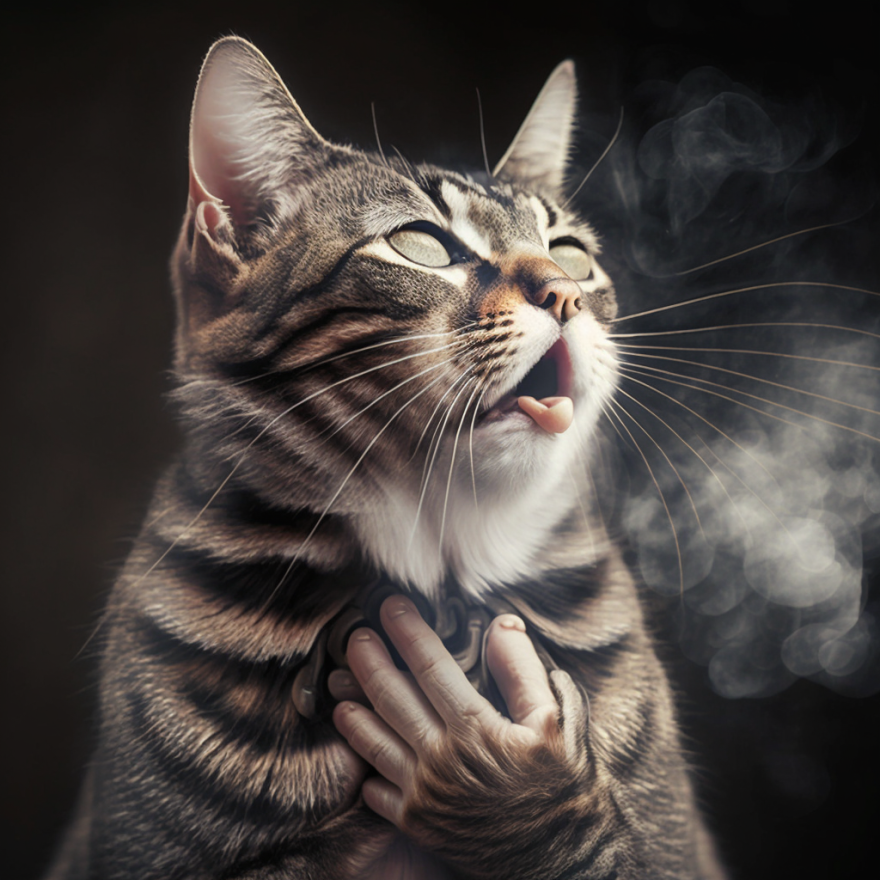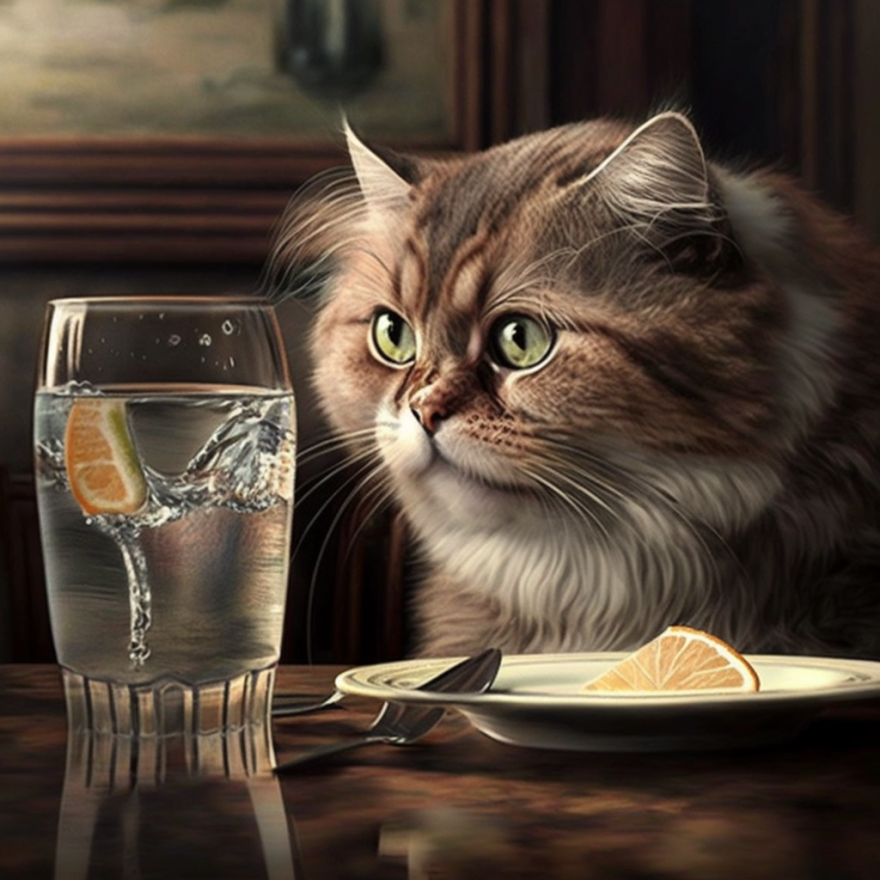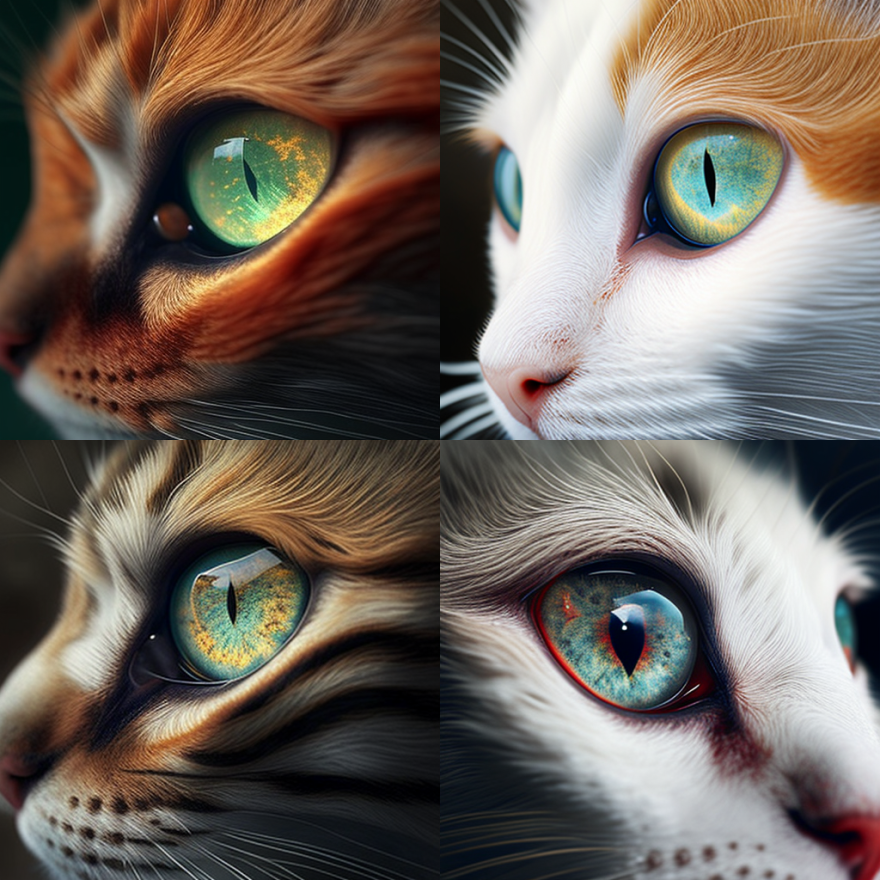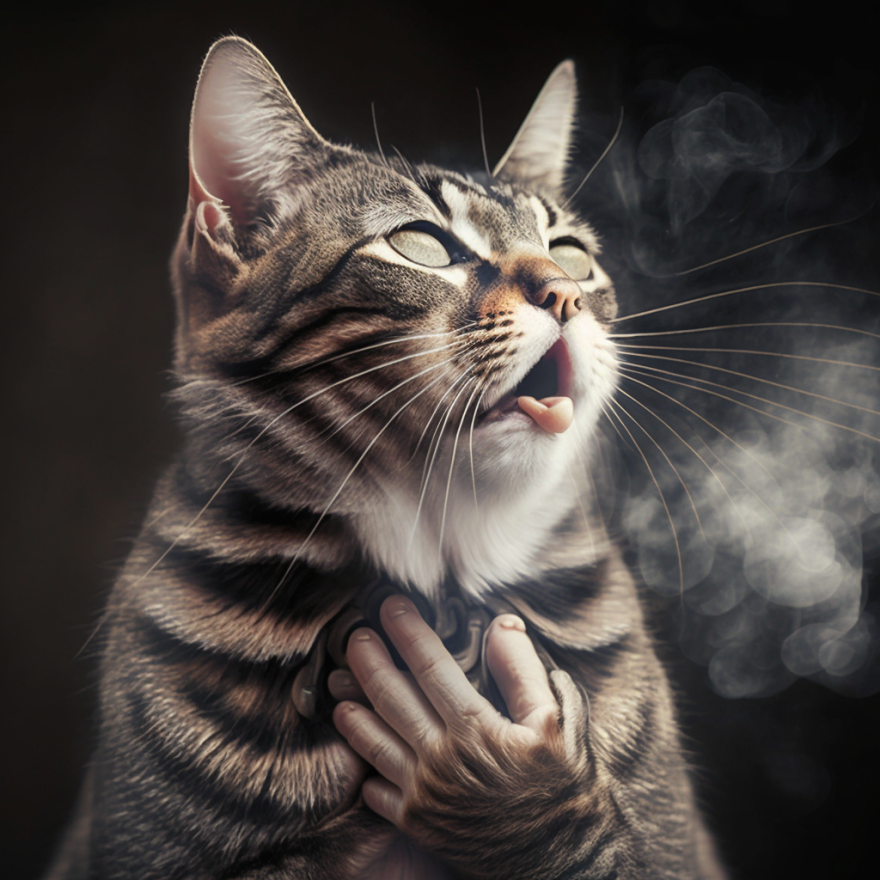1-Urinary tract issues, such as frequent urination, pain while urinating, or blood in the urine
Urinary tract issues in cats can include symptoms such as frequent urination, pain while urinating, and the presence of blood in the urine. These symptoms can be caused by a variety of underlying conditions, including urinary tract infections, bladder stones, feline idiopathic cystitis (a type of bladder inflammation), and blockages in the urethra (the tube that carries urine from the bladder out of the body).
Frequent urination and pain while urinating can be signs of inflammation or infection in the urinary tract, while the presence of blood in the urine can indicate a more serious problem, such as a urinary tract blockage or bladder stones. If your cat is exhibiting any of these symptoms, it’s important to seek veterinary care as soon as possible, as untreated urinary tract problems can lead to serious complications and even kidney damage. Your vet will be able to diagnose the underlying cause of the symptoms and recommend appropriate treatment, which may include antibiotics, pain management, dietary changes, or surgery.
Advertisement
2-Vomiting or diarrhea that persists for more than a day

Vomiting and diarrhea that persist for more than a day in cats can be a sign of a number of underlying health problems. Some common causes of persistent vomiting or diarrhea in cats include:
- Gastrointestinal infections, such as bacteria, viruses, or parasites.
- Intestinal blockages or foreign objects in the digestive tract.
- Liver or kidney disease.
- Food sensitivities or allergies.
- Inflammatory bowel disease (IBD).
- Certain medications or toxins.
If your cat is experiencing persistent vomiting or diarrhea, it’s important to seek veterinary care as soon as possible, as untreated, these conditions can lead to dehydration and malnutrition. Your vet will be able to perform a thorough examination and run tests to determine the underlying cause of the symptoms, and recommend appropriate treatment, which may include medications, dietary changes, or surgery.
It’s important to keep in mind that vomiting or diarrhea can also be a sign of more serious underlying conditions, such as cancer or organ failure, so prompt veterinary care is crucial in these cases.
a healthy cat should be vibrant and active, much like the Signs of Supremely Happy Indoor Cats.
Advertisement
3-Breathing difficulties or coughing

Breathing difficulties or coughing in cats can be signs of a number of underlying health problems and should not be ignored. Some common causes of breathing difficulties or coughing in cats include:
- Upper respiratory infections, such as feline herpes virus or feline calicivirus.
- Asthma or bronchitis.
- Heart disease, particularly heartworm infection.
- Lung parasites, such as lungworms.
- Pneumonia or other lung infections.
- Certain cancers, such as lung tumors.
- Foreign objects or hairballs in the airways.
Breathing difficulties or coughing can be serious in cats, especially if left untreated, as they can progress to more severe conditions, such as respiratory distress or heart failure. If your cat is experiencing breathing difficulties or coughing, it’s important to seek veterinary care as soon as possible. Your vet will be able to perform a thorough examination and run tests to determine the underlying cause of the symptoms, and recommend appropriate treatment, which may include medications, oxygen therapy, or surgery.
Advertisement

4-Changes in appetite or thirst
Changes in appetite or thirst in cats can be an indication of underlying health problems and should not be ignored.
A sudden decrease in appetite can be a sign of illness, such as digestive problems, liver or kidney disease, or infections. On the other hand, an increase in thirst can be a sign of diabetes, kidney disease, or other health issues.
It’s important to monitor your cat’s eating and drinking habits and to seek veterinary care if you notice any changes that persist for more than a day or two. Your vet will be able to perform a thorough examination and run tests to determine the underlying cause of the changes in appetite or thirst, and recommend appropriate treatment to help your cat feel better.
Ignoring changes in appetite or thirst can lead to more serious health problems, so prompt veterinary care is important.
Advertisement
5-Skin issues, such as excessive scratching or sores don’t heal

Skin issues, such as excessive scratching or sores that don’t heal, can be a sign of a number of underlying health problems in cats and should not be ignored. Some common causes of skin issues in cats include:
- Parasites, such as fleas or mites.
- Allergies, including food allergies or environmental allergies.
- Bacterial or fungal infections.
- Hormonal imbalances, such as hyperthyroidism.
- Certain skin disorders, such as feline acne or seborrhea.
- Cancer, particularly skin tumors.
Excessive scratching and sores that don’t heal can be painful for your cat and can also lead to secondary infections if left untreated. If your cat is experiencing skin issues, it’s important to seek veterinary care as soon as possible. Your vet will be able to perform a thorough examination and run tests to determine the underlying cause of the symptoms, and recommend appropriate treatment, which may include medications, shampoos, or dietary changes.
In some cases, skin issues can be a symptom of a more serious underlying health problem, such as a parasite infestation, a hormonal imbalance, or cancer, so prompt veterinary care is crucial in these cases.
Advertisement
6-Eye problems, such as redness or discharge

Eye problems, such as redness or discharge, can be a sign of a number of underlying health problems in cats and should not be ignored. Some common causes of eye problems in cats include:
- Conjunctivitis, which is an inflammation of the conjunctiva, the membrane that lines the eyelid and covers the white part of the eye.
- Corneal ulcers, which are painful open sores on the cornea, the clear outer layer of the eye.
- Glaucoma, which is a condition that causes increased pressure within the eye, leading to pain and vision loss.
- Cataracts, which are cloudy or opaque areas in the lens of the eye.
- Foreign objects or debris in the eye.
- Certain infections, such as feline herpes virus or feline immunodeficiency virus (FIV).
Eye problems can be painful for your cat and can also lead to vision loss or eye damage if left untreated. If your cat is experiencing eye problems, such as redness or discharge, it’s important to seek veterinary care as soon as possible. Your vet will be able to perform a thorough examination and run tests to determine the underlying cause of the symptoms, and recommend appropriate treatment, which may include medications, surgery, or other therapies.
In some cases, eye problems can be a symptom of a more serious underlying health problem, such as an infection or a degenerative disease, so prompt veterinary care is crucial in these cases.
Advertisement
7-Changes in behavior or increased lethargy
Changes in behavior or increased lethargy in cats can be a sign of a number of underlying health problems and should not be ignored. Some common causes of changes in behavior or increased lethargy in cats include:
- Pain or discomfort, such as from an injury, infection, or chronic condition.
- Certain medical conditions, such as kidney disease, heart disease, or liver disease.
- Thyroid problems, such as hyperthyroidism or hypothyroidism.
- Anemia, or a decreased red blood cell count.
- Certain infections, such as feline leukemia virus (FeLV) or feline immunodeficiency virus (FIV).
- Psychological problems, such as stress, depression, or anxiety.
Changes in behavior or increased lethargy can be a sign that your cat is in pain, is not feeling well, or is experiencing a health issue. If your cat is experiencing changes in behavior or increased lethargy, it’s important to seek veterinary care as soon as possible. Your vet will be able to perform a thorough examination and run tests to determine the underlying cause of the symptoms, and recommend appropriate treatment, which may include medications, dietary changes, or environmental modifications.
In some cases, changes in behavior or increased lethargy can be a symptom of a more serious underlying health problem, such as an infection or a chronic condition, so prompt veterinary care is crucial in these cases.
Advertisement
8-Lameness or changes in mobility
Lameness or changes in mobility in cats can be a sign of a number of underlying health problems and should not be ignored. Some common causes of lameness or changes in mobility in cats include:
- Arthritis or joint problems, such as hip dysplasia or osteoarthritis.
- Injuries, such as sprains, strains, or broken bones.
- Neurological problems, such as spinal cord injuries or nerve damage.
- Muscle diseases, such as feline infectious peritonitis (FIP) or myasthenia gravis.
- Certain metabolic diseases, such as hypothyroidism.
- Degenerative diseases, such as degenerative joint disease (DJD) or spinal cord degeneration.
Lameness or changes in mobility can be painful for your cat and can also lead to a decreased quality of life if left untreated. If your cat is experiencing lameness or changes in mobility, it’s important to seek veterinary care as soon as possible. Your vet will be able to perform a thorough examination and run tests to determine the underlying cause of the symptoms, and recommend appropriate treatment, which may include medications, physical therapy, or surgery.
In some cases, lameness or changes in mobility can be a symptom of a more serious underlying health problem, such as a neurological issue or a degenerative disease, so prompt veterinary care is crucial in these cases.
Advertisement
FAQs
- What should I do if my cat shows signs of illness?
- How can I prevent common health problems in my cat?
- When should I take my cat to the vet?
Remember, while we focus on our cat’s health, let’s not forget about our canine friends who also deserve a healthy life, as shared in the story of A Dog Found in the Trash Has the Most Amazing Rescue Story.
For the LSI and NLP keywords, here are some suggestions:
- Feline health
- Cat vomiting causes
- Diarrhea in cats
- Flea infestation signs
- Tapeworm symptoms
- FLUTD in cats
- Cat kidney disease
- Feline dental care
- Cat obesity management
- Cat health questions
For the external links, consider including:
- Cornell Feline Health Center – Understanding Feline Dental Health
- PetDesk on Pet Insurance – Evaluating the Worth of Pet Insurance
- PetDesk Guide – Pet Safety During Fireworks

